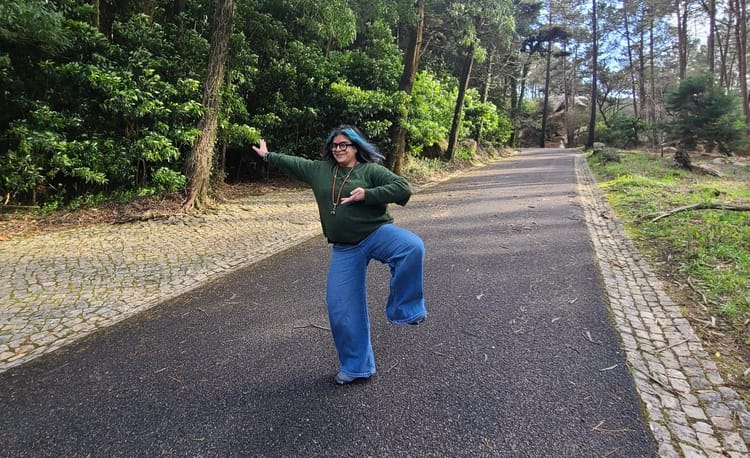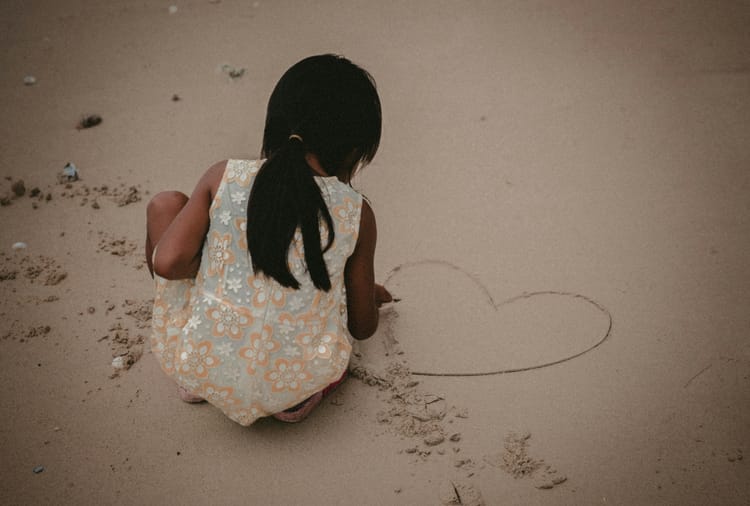Healing with potatoes
Yesterday I made my mother’s dry bataka nu shaak, a.ka. picnic shaak, or simply put potato sabzi. While shaak or sabzi means a dish made with vegetables, in my Gujarati-Konkani home, bataka nu shaak was also considered a vegetable dish.
Potatoes are a staple in many Indian preparations, but I rarely use them. Potatoes get a bad rap. Potatoes are carbs. Potatoes cause gas. Potatoes are high glycemic. Potatoes are unhealthy. It only felt right to exclude them, especially after being diagnosed with prediabetes a few years ago. I do indulge from time to time when I make cauliflower and peas sabzi, or pulao. But never have I ever, since I started cooking twenty years ago, made a dish that consists of only potatoes.
Cut to a few days ago. Sid comes home with a gigantic sack of potatoes, much to my horror. His reasoning? The difference in cost of four potatoes vs. sack of ‘em was negligible, and more is always better than less. And let’s face it, he loves potatoes. I was determined to not use them. But they eyed me and beckoned me from the bar stool Sid laid the sack on.
I woke up on Thursday morning hankering for picnic shaak. I was PMSing, extremely low energy and needed something to uplift me. The health-freak part of me tried to prevent me. I asked Sid if he wanted a salad with grilled chicken or potato sabzi with besan chillas. No prizes for guessing which one he chose.
I entered the kitchen and first made myself a strong cup of ginger-cardamom-mint tea. As the comforting aromas and warmth of the chai woke me up from the inside, I went to work. I peeled eight medium-sized potatoes and chopped them into small-ish pieces. I let them rest in a bowl with cold water to prevent them from browning.
Then came the difficult part. Pouring a generous portion of oil into the dutch oven. This dish basically shallow-fries the potato with spices. I waited to feel the hesitation in my body, but I was surprised; there wasn’t any. There was no hesitation at all. Next, I threw in mustard seeds without measuring, a typical Indian trait. As they sputtered, I once again threw in a copious amount of jeera, cumin seeds, and watched fry. Then came the spices. Cautious of my current tendency to have acid reflux, I threw in some red chill powder - unmeasured, but definitely a lot less than I have been using over the years. Followed by turmeric, coriander powder and salt. I stirred the masala and the fragrance rose and filled the entire room. As the spices smoked, I strained the potatoes and added them. As they cooked, their colour changed, and huge sobs escaped my gut and tears flowed down my cheeks. I felt convulsions of yearning for my mother as the potatoes cooked. I set a timer for eight minutes and stood there with my hands on my body trying to steady myself.
Sid came down at some point, smiling and beaming as he took in the savoury scent. I told him, this is my mother’s recipe. She called this picnic shaak. We would take it in our baskets when we went to large family outings. Immediately I had visions of my mother’s extended family, complete with grandaunts and uncles and grandchildren, in the Ajwa-Nimeta gardens near Vadodara.
I saw Sid, impatiently hover around the pot, just as I did as a child. I served him hot besan chillas, because I still cannot make chapatis, and his enjoyment doubled my own. He went back to work, and I sat down by the large windows in our kitchen, with a plate of picnic shaak and chillas. I took one bite and my entire being blossomed like a lotus flower in the morning. Amidst tears and smiles that emanated from my root chakra, I ate with contentment. I felt energized and uplifted.
How can something so nourishing be considered bad or unhealthy? Why are so many things staple in Indian cooking demonized as unhealthy, like rice, ghee, potatoes?
The joy I felt lasted hours. I felt nourished just as I did when my mother cooked for me. It felt like these shallow-fried, spiced potatoes were a gift from my mom. I realized that in denying myself this dish for over two decades, I have been denying myself my mother’s love.
I am setting potatoes free. More picnics are in my future. Next stop, thepla.
__
In reclaiming my heritage, I have stepped into the kitchen. Each time I make something I ate in childhood, I am reclaiming a part of me that I had pushed into a corner. I am healing.
Healing is more than what happens in a therapist’s office or merely in the physical body. Healing comes from embodying ease. We try to control our bodies by eating in a certain way - we call it health, but it is just another manifestation of our want-don’t-want mind that makes us chase certain outcomes and fear/avoid others.
In resisting what nourishes us, we deny ourselves pleasure and joy, both crucial aspects of the human experience. You may think that you do not deny yourself food, and that may be true, but it is important to reflect if you are denying yourself another avenue of pleasure or comfort.
Colonized standards of health and beauty are pervasive. Therefore treatments and trends also reflect these narrow ideals. In trying to achieve these restrictive and elusive standards, we reject and eliminate things that make us unique and different as if these are bad words.
How wonderful that food can be a means to tackle many oppressive ideas, like fat phobia and healthism, that we may have internalized. We have a chance to decide what our legacy will be.
Mine will be one of liberation.


Member discussion